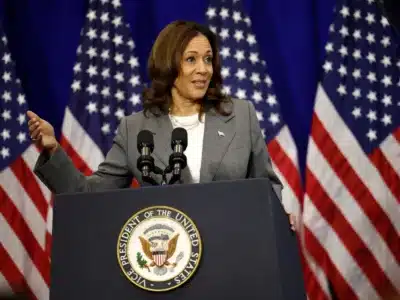On Tuesday, 16 July 2024, the UK witnessed the swearing-in of a historic new parliament. With more than half of the 650 elected MPs entering the House of Commons for the first time, this fresh influx marks a significant shift not only in the composition of the Commons but also in its diversity.
A notable 335 new MPs now occupy seats in the Commons, bringing fresh perspectives and energy. However, this turnover comes with both opportunities and challenges. Dr. Sofía Collignon, a senior lecturer in comparative politics at Queen Mary University of London, highlights the dual nature of this development. “This is significant because, on the one hand, we will have very fresh faces that will be starting their careers, but also will come with new positions on key issues,” she said. “For a record number of people there will be required training, they will be required to get experience with parliamentary procedures, but also with the spoken and unspoken norms of working in parliament.”
The 2024 general election has resulted in 263 female MPs, accounting for around 41% of the House of Commons. This marks a substantial increase from previous years and represents the highest proportion of women ever in the Commons. Furthermore, the representation of ethnic minorities has reached a new peak, with 14% of MPs (90 in total) coming from diverse backgrounds, better reflecting the UK’s ethnic diversity, which stands at 17%.
This surge in diversity extends beyond gender and ethnicity. A record 64 MPs openly identify as LGBTQ+, the highest number at the start of any parliament. Among them is Green Party co-leader Carla Denyer, who identifies as bisexual or pansexual and is part of a group of at least six Quakers elected this term.
These levels of diversity are not coincidental but the result of long-term, strategic efforts to promote inclusivity within political parties. Dr. Collignon notes, “One thing that is key is that we are seeing the results of all the Labour Party efforts to recruit women and diverse candidates.” This sentiment was echoed by Prime Minister Sir Keir Starmer in his first Commons speech, where he celebrated the “most diverse parliament by race and gender.”
Historical Perspective and Current Context
Women’s representation in parliament has come a long way. A hundred years ago, women constituted a mere 0.7% of MPs. Today, they make up over two-fifths of the Commons. Similarly, the representation of ethnically diverse MPs has dramatically increased from just four in 1987 to 90 today. This shift is underscored by the iconic image from 1987 of Labour’s black and Asian MPs with then-party leader Neil Kinnock: Bernie Grant, Paul Boateng, Keith Vaz, and Diane Abbott.
While diversity in sexuality and gender identity is also at an all-time high, the number of LGBTQ+ MPs has fluctuated, reaching its peak during the tenure of former Prime Minister Rishi Sunak with 68 members.

Diversity in Parliament
Education and Class
Educational backgrounds are shifting as well. The number of politicians with private schooling is decreasing. In Sir Keir Starmer’s new cabinet, only one member attended a private school, and one attended a grammar school. This marks a significant departure from previous Conservative cabinets, where the majority were privately educated. Currently, 23% of MPs were privately educated, compared to just 7% of the UK student population, highlighting a persistent yet narrowing gap.
The Impact of Diversity
This parliament not only reflects greater diversity in demographics but also in age, with younger MPs, particularly from the Labour Party, making up a significant portion. Dr. Collignon emphasizes the potential benefits of this diversity: “We want the best policies that are possible and we can only get them if we hear from and if we have evidence from people from different backgrounds, with different experiences.”
Political correspondent Gurpreet Narwan points out that while the diverse composition of parliament is generally positive and fosters trust in democratic institutions, it does not automatically guarantee policies that serve all interests. For instance, despite increased female representation in the Conservative Party during David Cameron’s tenure, support from female voters has dwindled, with women now more likely to vote Labour.
Moreover, identity does not necessarily dictate political stance. Recent years have seen MPs from diverse backgrounds endorsing tough immigration policies. Therefore, while the new prime minister may celebrate this diversity, its political consequences remain complex and unpredictable.
The 2024 parliament stands as the most diverse in UK history, a testament to years of dedicated effort toward inclusivity. This diversity brings a wealth of perspectives and experiences, promising a richer, more representative debate on national issues. As Dr. Collignon succinctly puts it, a more representative parliament is better equipped to address and understand the multifaceted issues facing society today, paving the way for policies that better reflect the diverse fabric of the nation.















